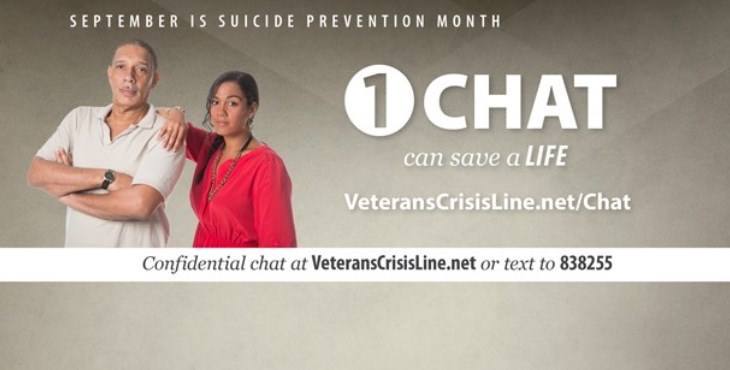Suicide is complex. Just as there are many risk factors that can contribute to suicidal behavior, there is more than one treatment or intervention to mitigate those risk factors. At the VA VISN 2 Center of Excellence (CoE), where I direct a team of researchers and educators dedicated to preventing suicide, we apply the bio-psycho-social model of understanding health and illness. With this in mind, our diverse research activities include examining depression and substance abuse, both of which are well-documented suicide risk factors, and sleep and spirituality, two areas that may not immediately come to mind when we think about suicide prevention. As such, I would like to shed some light on these less traditional areas, both of which may potentially prove useful in preventing suicide.
Spirituality falls under the “social” dimension of understanding health and illness. The preponderance of evidence suggests that attaining a degree of spiritual well being may yield a positive effect on health. Be that as it may, spirituality is not currently part of any public suicide prevention program. This is why, here at the CoE, we have chosen to conduct research in this regard.
Whether as part of a formal religion or one’s personal belief system, spiritual well being offers one a sense of meaning, purpose, and hope. Ultimately, it may also influence the will to live. Recent research led by the CoE’s Dr. Marek Kopacz outlined some of the spiritual struggles that Veterans face when they return home from deployment. His research looks to identify opportunities for enhancing spiritual well being and to better understand its protective potential against suicide.
Of note is that the VA offers all Veterans the opportunity to meet with specially trained chaplains who, in addition to spiritual support, are sensitive to mental health issues and – should the need arise – can refer Veterans for formal health care services.
Sleep is another area of CoE research that I want to highlight. While it is not known exactly why, there appears to be a connection between poor sleep and suicidal behavior. One theory is that poor sleep is an additional stressor, on top of many other stressors, and that it may be a “tipping point” for suicidal behavior. Examining the relationship between sleep and suicidal behavior is of special interest to the CoE, as sleep problems affect many Veterans.
The good news is that there are effective treatments for sleep, including behavioral treatments that have the advantage of teaching Veterans skills and strategies that they can use in their daily life. As a result, we are actively researching behavioral therapy treatments for Veterans with sleep problems
Sleep expert and CoE Director of Research Dr. Wilfred Pigeon is currently leading a study that evaluates cognitive behavioral therapy for insomnia. Veterans suffering from insomnia, depression or PTSD, along with suicide ideation or behaviors, partake in therapy sessions for six weeks, during which time the severity of their suicidal thoughts is measured. The hope is that improved sleep can help alleviate their suicidal thoughts, thereby lessening their risk for suicide.
It is important for Veterans to know that if they are having trouble sleeping or not feeling well-rested, they should reach out to their VA health care provider, who can diagnose and treat such common sleep disorders as insomnia or sleep apnea.
If you or someone you know is in crisis, reach out and call 1-800-273-8255, Veterans and Servicemembers, press 1. You can also chat online at VeteransCrisisLine.net, or send a text message to 838255. Confidential support from caring VA responders is available 24 hours a day, 7 days a week, 365 days a year.

Topics in this story
More Stories
Study underscores important role COVID vaccination can have in protecting Veterans from infection and reducing long-term health consequences
Columbia VA’s robotic surgery teams completed their 800th robotic surgery and are on schedule to hit 1,000 by the end of the year.
In a decentralized clinical trial, Veterans can participate from their own homes or local VA instead of having to travel to a research site.







I feel that research into spirituality will indeed show it to be a very important part of suicide prevention. In addition, it would probably be reasonable to separate “religion” from spirituality. Although closely associated, there is a difference. I would be interested in seeing the association of self-worth, appreciation for life, purpose for living, and spirituality for example.